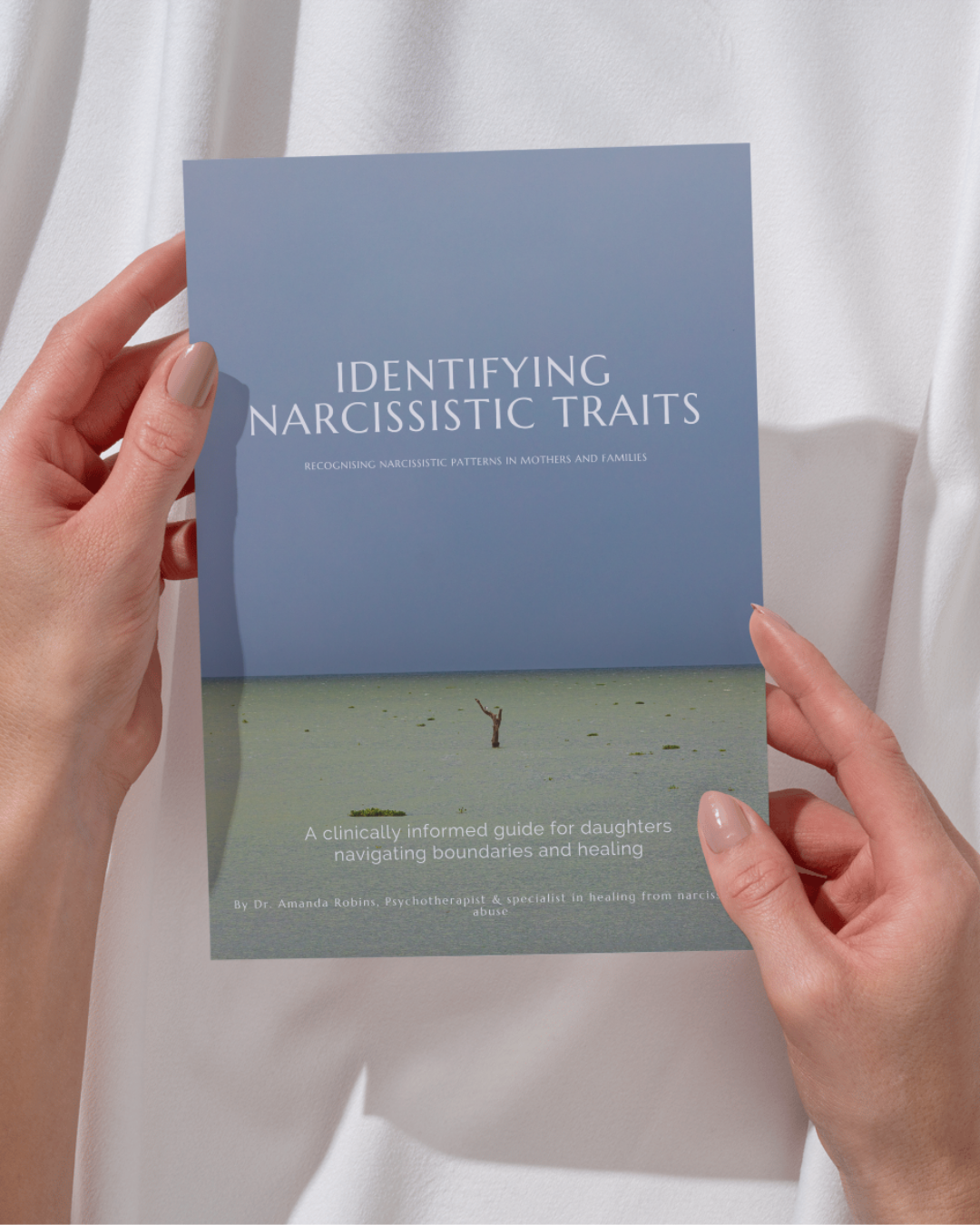The Cult-Like Dynamics Inside Narcissistic Families
Yep. You heard it here first.
Narcissistic families are like mini cults — complete with charismatic leaders, submissive acolytes, mini-me’s and hangers-on.
Without the god-bothering, incense and group chants… at least most of the time.
If you’re mapping patterns or planning boundaries, these insights may help.
There’s always a lot going on under the surface in narcissistic families — and most of it isn’t good.
Personality disorders cause intense and unacknowledged emotions to circulate through projection and identification. Everyone ends up subsumed into the zeitgeist of parental dysfunction.
The family’s prime directive is to meet the needs of the narcissistic parent. Everything and everyone else is expendable.
Children are sacrificed on the altar of parental ego. Even the golden child is only an adjunct — admired when they perform, discarded when they don’t. Their position depends on compliance, and even then it often comes at the cost of their authentic self.
Just like every self-respecting cult, the narcissistic family has its secrets and distorted traditions.
Unquestioning obedience is valued. Freedom of thought is dangerous. The narcissistic parent is all-powerful, all-knowing, and intransigent. The rules are never clear — but transgression is always punished.
Dissenters are shunned. Truth-tellers are excommunicated.
Sound familiar?
And just like most cults, the external image is polished to an eye-watering sheen, while the reality of daily life is bleak. Inside these families, everyone is conscripted into maintaining appearances — often at the expense of their inner world.
The lesson is simple:
your feelings don’t matter, but the family image does.
Explore all my eBooks, workbooks and courses →
The Perfect Image and the Forbidden Truth
In the 80s drama, Ordinary People, Beth (Mary Tyler Moore) embodies the narcissistic family leader — immaculate, composed, unwilling to grieve, blocking any authentic emotion from entering the home.
She cannot tolerate vulnerability or truth from others.
She still sees herself as the victim.
This is textbook narcissistic family functioning:
Image first
Feelings last
Authenticity unwelcome
Obedience expected
When the Leader Is Also the Wound — Insights from Psychotherapist and Cult Survivor, Daniel Shaw
In Traumatic Narcissism, Daniel Shaw draws parallels between cult dynamics and narcissistic families.
A former member of a fundamentalist Hindu cult, Shaw describes the slow realisation that his guru — a man he revered — was in fact corrupt, exploitative, and narcissistic.
His dissent was punished with vilification and shunning.
He defines narcissistic leadership as:
“The use of power to intimidate, seduce, coerce, belittle and humiliate others… not to enlighten, but for psychological enslavement and parasitic exploitation.”
Just like in narcissistic families, anyone who offers even mild criticism is punished.
Triangulation, Enmeshment and Sibling Rivalry
Triangulation is a hallmark of both cults and narcissistic families. Unlike the strategic manipulation of cult leaders, narcissistic parents often do this unconsciously — driven by deep emotional needs, fragility, and unintegrated trauma.
How Triangulation Works in These Systems
Triangulation appears whenever the narcissistic parent needs to regulate their own emotions.
They may:
use one child to manage another
use children to stabilise themselves
get a partner to reinforce their perspective
divide siblings to maintain control
The goal is rarely strategic — it’s an emotional survival mechanism.
intense Sibling Rivalry Is Manufactured, Not Organic
Siblings end up:
competing for affection
competing for emotional safety
competing for approval
competing for mere survival
The rivalry is cultivated by the parent’s unmet emotional needs — not the children’s personalities.
Enmeshment as the Default Setting
Because boundaries are collapsed, children often:
absorb the parent’s emotions
anticipate danger (ie Hypervigilence)
over-function
regulate the adult
suppress their own needs
Enmeshment becomes the norm.
Separation becomes “betrayal.”
Authenticity becomes “rebellion.”
When the Child Changes (But the System Doesn’t):
In therapy, many daughters reshape their identity and gradually step out of the roles assigned to them in childhood.
This shift is often the clearest sign that therapy is working — the old role simply no longer fits because you no longer fit it.
Sometimes a scapegoat becomes the “responsible one.”
Sometimes a golden child begins stepping away from compliance and perfectionism.
Sometimes a formerly silent or appeasing daughter starts setting limits.
But the narcissistic family system itself rarely evolves.
Most narcissistic parents struggle desperately to maintain the status quo — often at great cost to their children’s emotional wellbeing.
This can take many forms, including:
Control through money (inheritance threats, financial help with strings attached)
Control through practical support (childcare, housing, transport, “help” that reinforces dependence)
Control through access to other family members — siblings, the non-narcissistic parent, grandparents, even extended relatives.
The narcissistic parent may position themselves as gatekeeper, withholding or granting access to relationships depending on compliance. (This is often unconscious, driven by emotional necessity rather than strategy.)
Control through guilt and obligation
Control through chaos (manufacturing conflict, reviving old alliances, destabilising boundaries)
When you grow, the system destabilises — and so it reorganises itself around your change.
You change.
The system reassigns roles.
And the dynamic continues.
A full clinical example of this role-shift process will appear in my upcoming Narcissistic Family Roles Guide. (Due in December)
👉 For more about narcissistic family roles, my blog post Golden Child vs Scapegoat can fill in the gaps.
Many people find that ideas like this stay with them long after they’ve finished reading. Understanding the dynamics of a narcissistic family system often happens gradually, and there isn’t always a clear next step.
Some people eventually want something more contained to work with privately — a workbook or guided process — rather than continuing to read. Others aren’t ready for that yet, and that’s completely understandable.
If you’re curious, you can look through my resources here. There’s no right order, and no expectation that you’ll know what you need straight away.
Explore all my eBooks, workbooks and courses →
Free Resource for Readers
Want a clearer understanding of your narcissistic parent?
Download my free guide, Identifying Narcissistic Traits, and learn how to recognise the patterns that shape narcissistic families — including manipulation, control, and emotional enmeshment.
The “Us vs Them” Narrative
Narcissistic families CULTivate an “us vs them” worldview.
Outsiders who question the family’s functioning are:
dismissed
labelled “crazy”
seen as dangerous
cut off or “shunned”
Truth threatens the narcissistic parent’s fragile self-image.
Defence is instinctive.
Reality is optional.
Leaving the System — But Taking the Legacy With You
Eventually, children leave the narcissistic family.
But leaving physically doesn’t always mean leaving psychologically.
Many daughters move interstate or overseas, hoping to escape — only to find they carry the family’s emotional imprint with them.
Therapy becomes the place where they finally name what happened, grieve what they did not receive, and reclaim their buried authenticity.
For more in-depth resources, you can visit my shop page.
Explore all my eBooks, workbooks and courses →
Go Deeper with the Ebook Bundle
This bundle brings together three foundational guides — From Shame to Self-Worth, Developing Self-Compassion, and Parenting After Narcissism. Each one addresses a different part of the healing journey, helping you understand trauma, break old patterns, and strengthen your emerging sense of self.
About the Author
Dr. Amanda Robins
Amanda Robins, PhD is an accredited mental health social worker and psychotherapist based in Melbourne, specialising in trauma, narcissistic abuse, and complex family systems.
She integrates evidence-based psychotherapy with insights from her visual art practice to help clients rebuild self-worth and navigate the legacy of early relational trauma.
If you’d like personalised support at any stage of your recovery, you can book an appointment anytime.


















Parentification happens when a child is pushed into adult roles—emotionally, practically, or both—long before they are ready. This article explains how parentification develops, why it is common in narcissistic families, and the lasting impact it has on self-worth, boundaries, and adult relationships.